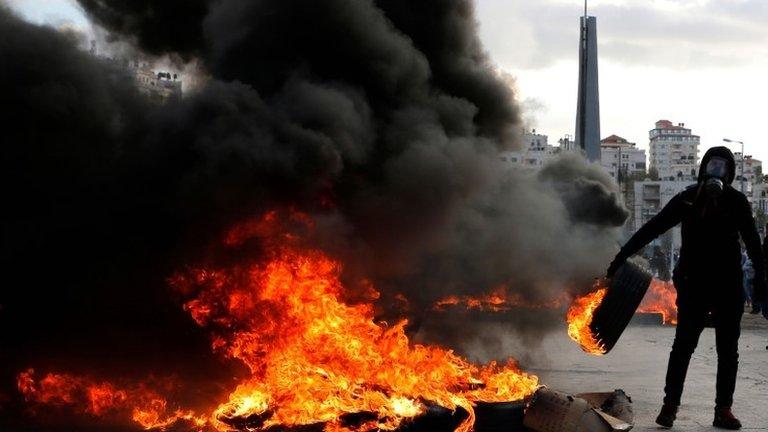Trump threatens stop to Palestinian aid over Jerusalem row
- Published
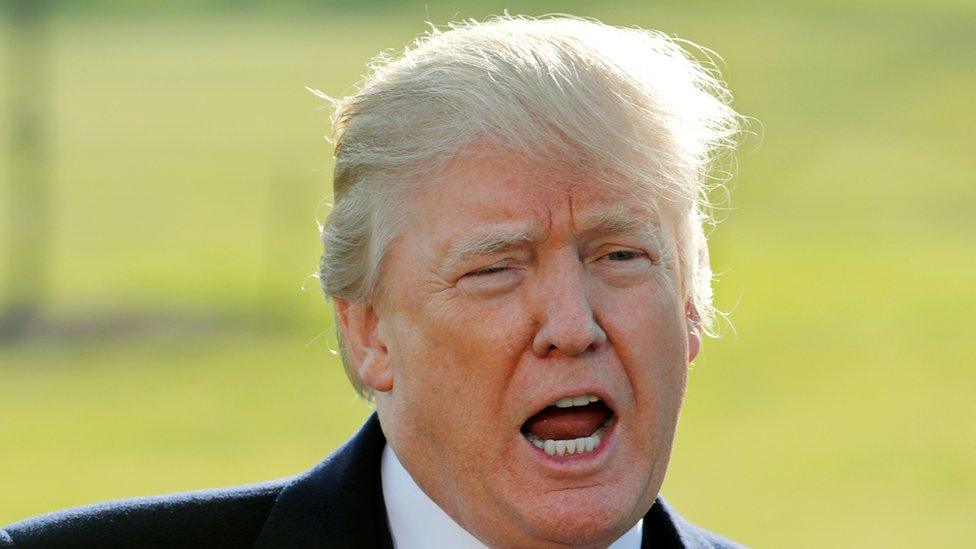
Mr Trump's comments suggest he is planning to pull Palestinian aid funding
The US may stop aid payments to Palestinians who are "no longer willing to talk peace", President Trump said.
On Twitter, Mr Trump said the United States received "no appreciation or respect" in return for its aid.
He also said his controversial recognition of the contested city of Jerusalem as Israel's capital took the hugely divisive issue "off the table" for new peace talks.
Palestinians had said the move showed the US could not be a neutral broker.
Soon after Washington's decision was announced in December, Palestinian President Mahmoud Abbas said he would not accept any US peace plan for the Middle East.
The decision on Jerusalem was also overwhelmingly condemned at the United Nations, where 128 countries voted against Mr Trump's fulfilment of a campaign promise.
The US president was following up earlier comments about aid payments to Pakistan, in which he said the US had received only "lies and deceit" in exchange for billions of dollars in aid.
Allow X content?
This article contains content provided by X. We ask for your permission before anything is loaded, as they may be using cookies and other technologies. You may want to read X’s cookie policy, external and privacy policy, external before accepting. To view this content choose ‘accept and continue’.
Allow X content?
This article contains content provided by X. We ask for your permission before anything is loaded, as they may be using cookies and other technologies. You may want to read X’s cookie policy, external and privacy policy, external before accepting. To view this content choose ‘accept and continue’.
What have the Palestinians said to anger the US?
Why the ancient city of Jerusalem is so important
Jerusalem is one of the world's most contested sites.
Israel claims the whole of the city as its capital. The Palestinians want East Jerusalem, occupied by Israel in the 1967 Middle East war, to be the capital of a future Palestinian state.
Mr Trump, however, decided to formally recognise Jerusalem as Israel's capital, despite being warned it could cause unrest in the region.
He also said he would move the US embassy there from Tel Aviv, where all other nations have their consulates.
For the Palestinians, Mr Abbas said: "The United States has proven to be a dishonest mediator in the peace process."
He also called Jerusalem the "eternal capital of the state of Palestine".
How did the Palestinians respond to Mr Trump's threat to cut aid?
Angrily. A Twitter feed of the governing Palestine Liberation Organisation accused Mr Trump of sabotaging their "search for peace".
Allow X content?
This article contains content provided by X. We ask for your permission before anything is loaded, as they may be using cookies and other technologies. You may want to read X’s cookie policy, external and privacy policy, external before accepting. To view this content choose ‘accept and continue’.
Allow X content?
This article contains content provided by X. We ask for your permission before anything is loaded, as they may be using cookies and other technologies. You may want to read X’s cookie policy, external and privacy policy, external before accepting. To view this content choose ‘accept and continue’.
What kind of aid does the US send to Palestinians?
Mr Trump's tweets followed remarks from Nikki Haley, the US envoy to the United Nations, in which she said the US would stop contributing to the UN's relief agency for Palestinian refugees.
The agency runs education, health, and social programmes. The United States is its largest governmental donor, handing over almost $370m (£270m) in 2016.
Speaking at a news conference, Ms Haley said: "The president has basically said that he doesn't want to give any additional funding, or stop funding, until the Palestinians are agreeing to come back to the negotiation table."
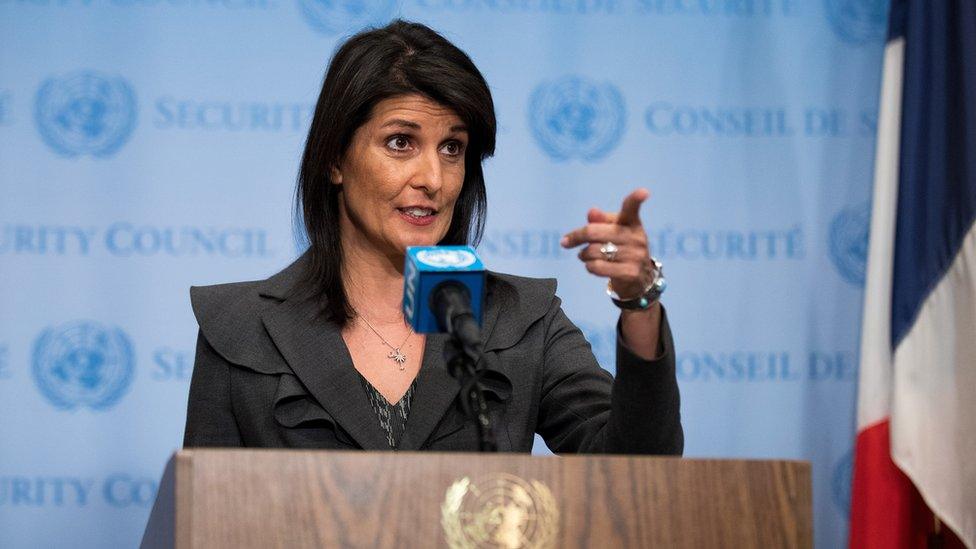
The United Nations' overwhelming condemnation was "not helpful", Ms Haley said
She said the UN's vote to condemn Mr Trump's Jerusalem decision was "not helpful to the situation".
"The Palestinians now have to show their will that they want to come to the table. As of now, they're not coming to the table but they asked for aid.
"We're not giving the aid, we're going to make sure that they come to the table," she said.
The withdrawal of aid is likely to have a significant impact on the UN agency's work, as the US contributes almost 30% of its overall funding, external.
In 2016, the second-largest donor, the European Union, donated less than half as much as the US.
- Published22 December 2017
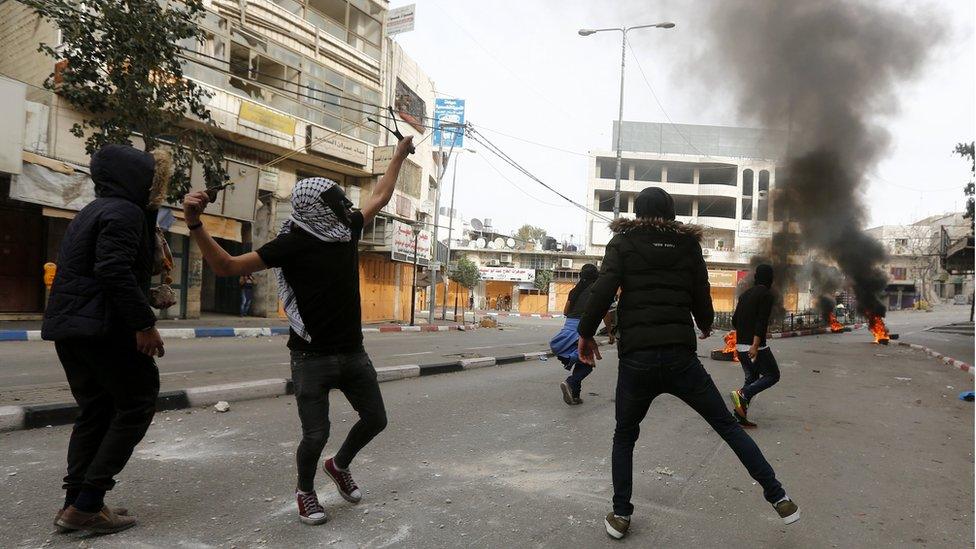
- Published22 December 2017
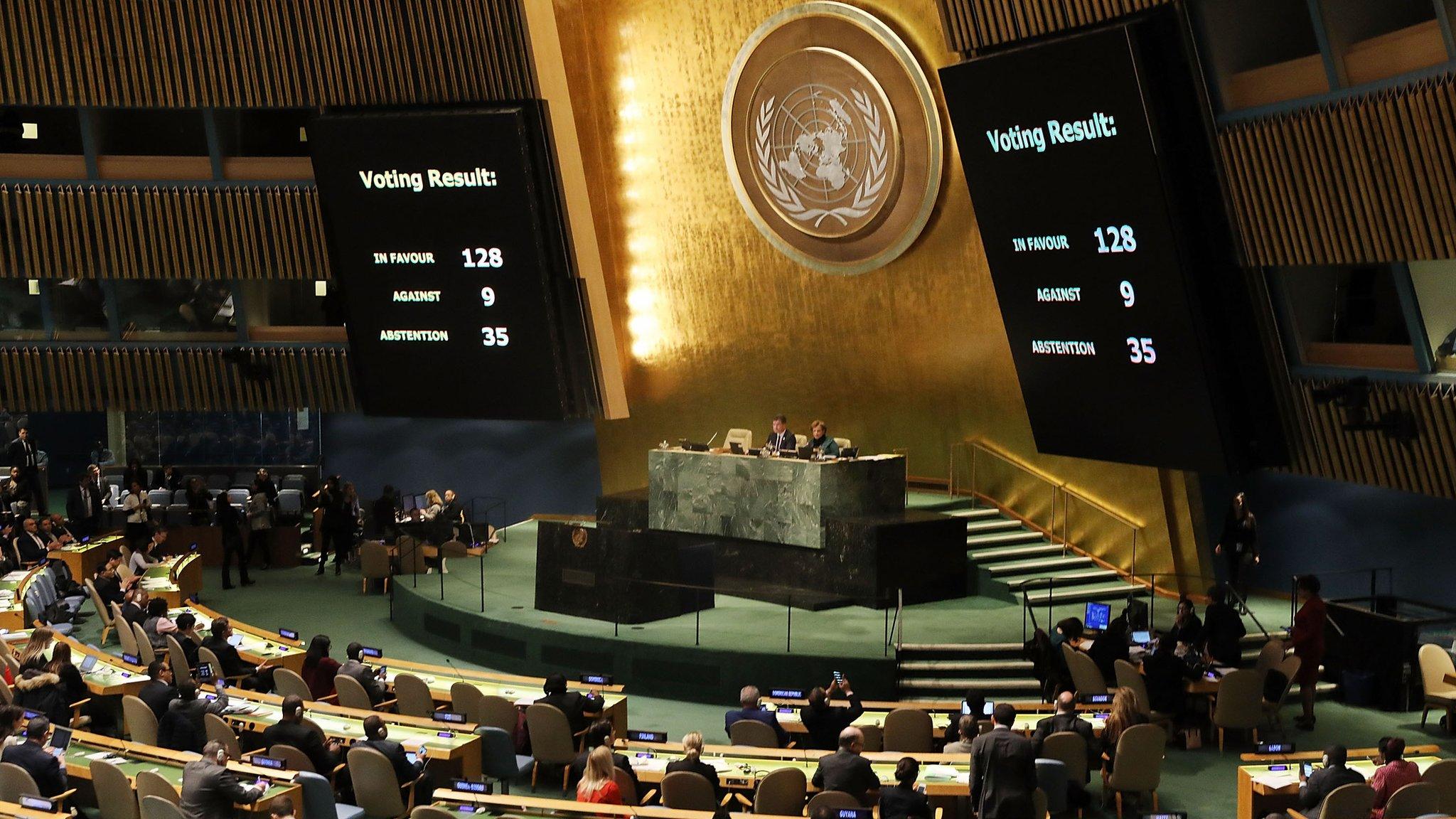
- Published18 December 2017

- Published8 December 2017
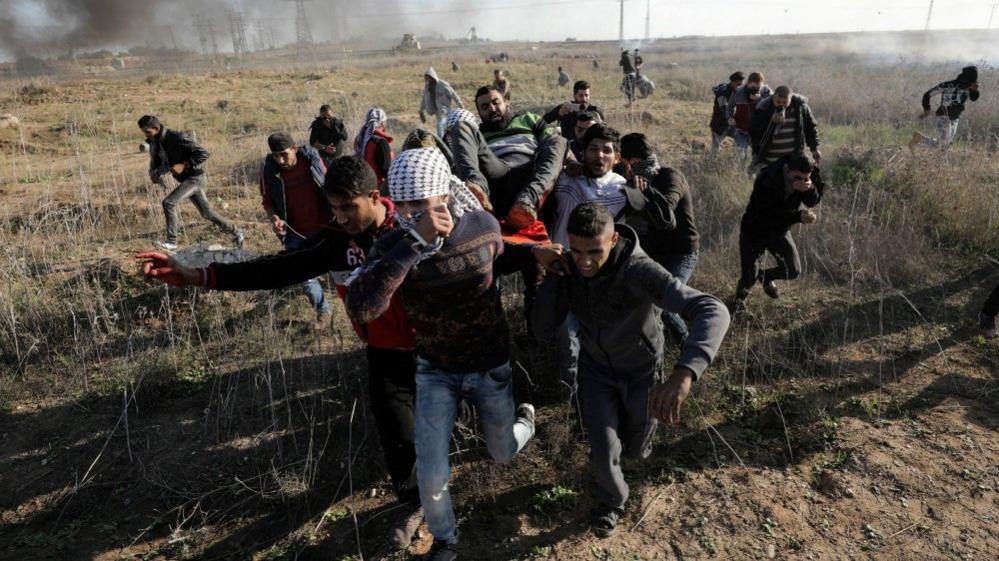
- Published6 December 2017
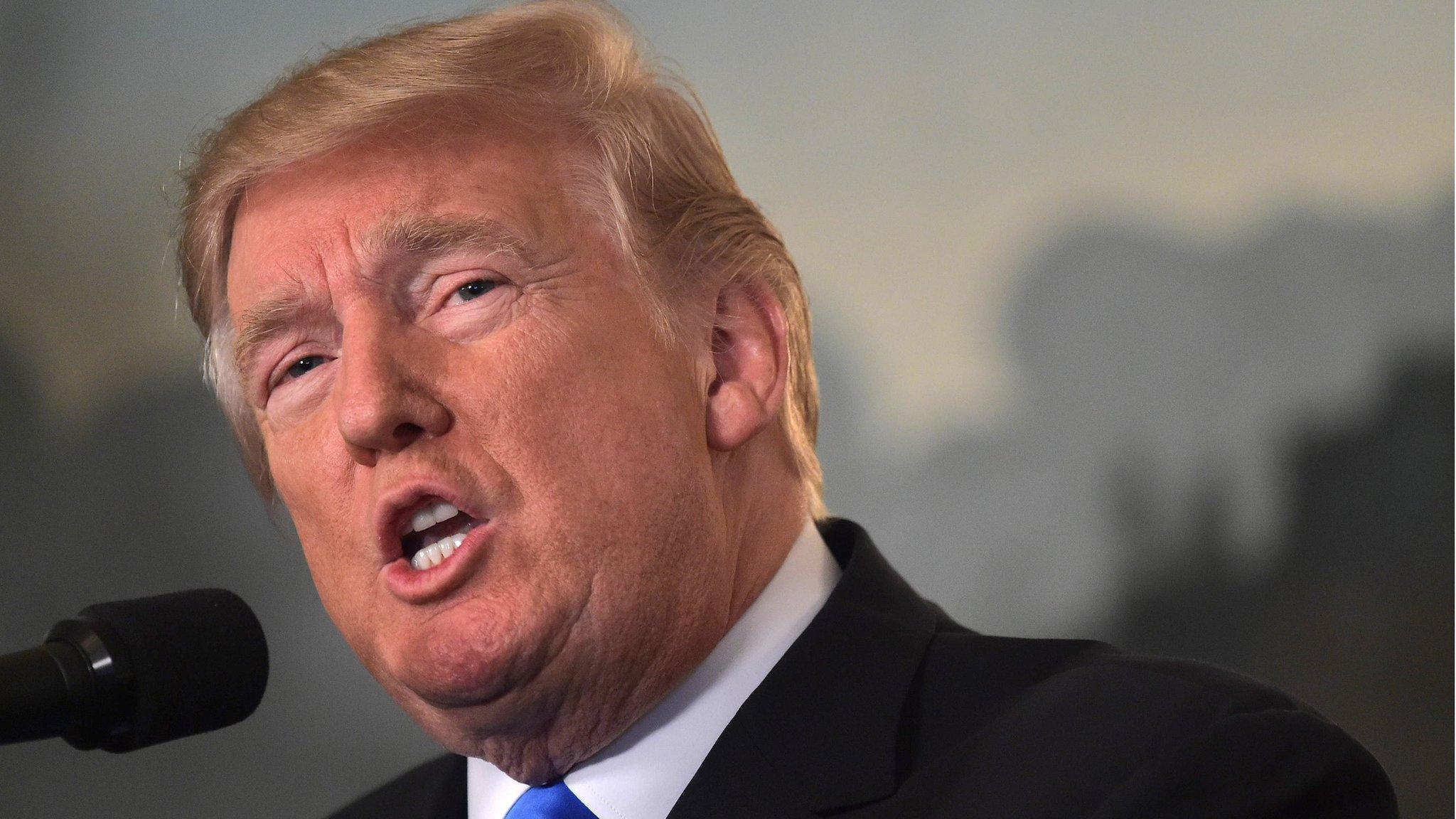
- Published8 December 2017
